Stating a game is “like Dark Souls” has become such a tired trope that most people actively avoid the comparison nowadays, instead opting to lump anything similar to From Software’s landmark title under the “Soulslike” banner. This is due to the game being often imitated, but rarely matched since its 2011 debut. Dark Souls’ philosophies have made their way into games across various genres, from third-person shooters to 2D platformers, so extensive is its influence. To say it has become one of the most impactful games made in the last ten years is an understatement: Dark Souls is a cornerstone of modern video game design.
Cold Symmetry’s Mortal Shell, however, earns the “like Dark Souls” comparison moreso than any other game I’ve played recently – the shattered world of Fallgrim could easily be confused for an area cut from a Souls title. The oppressive swamps, crumbling keeps, and foreboding crypts all evoke memories of Lordran, and the dark fantasy aesthetic that dominates the world lays Cold Symmetry’s inspiration bare. Mortal Shell is more than a passing imitation, however, thanks to its willingness to try new things within the well-worn Soulslike genre.
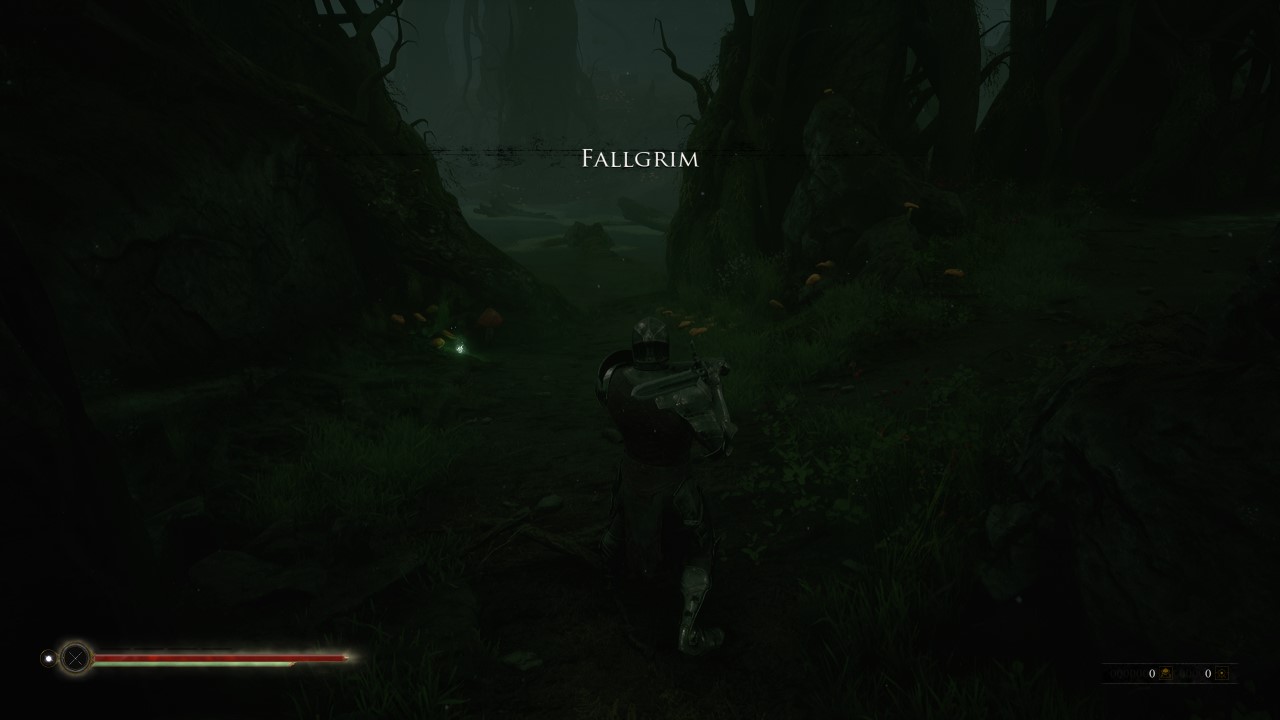
Mortal Shell rides the line between “inspiration,” and “imitation.”
Mortal Shell’s first ten minutes do little to differentiate itself from its Soulslike peers. You start out in a fog covered realm learning the basics, which will prove immediately familiar to anyone who’s played an action-RPG in the last ten years. You have a light attack, a heavy attack, and dodge roll tied to a regenerating stamina bar, the starter sword carries a sense of genuine heft when swung, and the opening “boss” fight is a brutal reminder that every mistake can and will prove fatal.
The first hint that there’s something special resting beneath Mortal Shell’s familiar facade is the Harden mechanic introduced early-on in the tutorial. Harden is more than a substitute for blocking: it’s a comprehensive anti-mistake button. No matter what animation you find yourself committed to Harden will freeze your character in place in a layer of thick stone. Did you commit to a dodge roll that won’t get you to safety? Harden. Have you triggered an attack only to see your foe is about to pummel you into the dirt? Harden to absorb the blow and finish your own. It’s on a short five-second cooldown, so it’s not a complete “get out of jail free” card, but mastering Harden will prove the difference between life and death in Mortal Shell.
Shortly after arriving in Fallgrim proper you’ll discover Mortal Shell’s second unique wrinkle: the Shells themselves and the second chance mechanic. Since you’re an independent spirit controlling these Shells, your first death isn’t the end of your life. Mortal Shell’s novel “second chance” mechanic allows you to recover your Shell while in your weakened Foundling spirit form after your first death. Your enemies will temporarily Harden and freeze as you’re punted out of your shell, and you have access to all your usual abilities while in this form. A single strike can kill you while you’re controlling the Foundling, and if you’re struck down before reentering your Shell you’ll die and respawn. Succeed and you’ll have another chance to carry on. Die again, however, and it’s back to your last checkpoint.
Unlike other contemporary Soulslike on the market Mortal Shell doesn’t a have traditional leveling system, nor does it have equipment. Instead, there are four Shells scattered about the central zone that each specialize in a different playstyle. Harros, the first Shell players discover, is an all-rounder with middle-of-the-road stats. Eredrim, on the other hand, is a resilient tank that trades stamina and resolve for a substantially larger health-pool and greater defense.
Each shell has a selection of passives within a skill wheel that can be unlocked using Mortal Shells version of souls – Tar – and a second resource called Glimpses. Tar is earned from killing enemies and from items spread throughout the world, and you lose it if you die. So far nothing that hasn’t been done before in the numerous Soulslikes out there. As is expected at this point, you can return to the spot you were slain to retrieve your lost Tar, but die again beforehand and that Tar is lost forever. Glimpses are somewhat different, and act as a more permanent form of experience.
Glimpses can be dropped from slain foes, but they’re not guaranteed. Rather, the vast majority of Glimpses earned will be from the various Glimpse consumables littered throughout Fallgrim and the temples beyond. Glimpses are not lost upon death, but they are locked to the Shell they were either picked up by, or whom you used the consumables with. This means players are encouraged to find the shell they click with the most, and to focus on leveling them first.
It’s a novel approach to progression, and for the most part it ensures no one truly falls behind even after losing a wealth of Tar. There is a small issue with the system that can make leveling more frustrating than it should be. Each passive for every Shell requires a set amount of Tar and Glimpses to unlock – some cheap, others quite expensive. Since Glimpses are not as common in the early game as Tar, and because you can’t dump excess Tar into a skill until you have the exact amount of Tar and Glimpses needed to unlock it, it’s not uncommon to find yourself with a vast amount of Tar with little to spend it on for the first couple of hours.
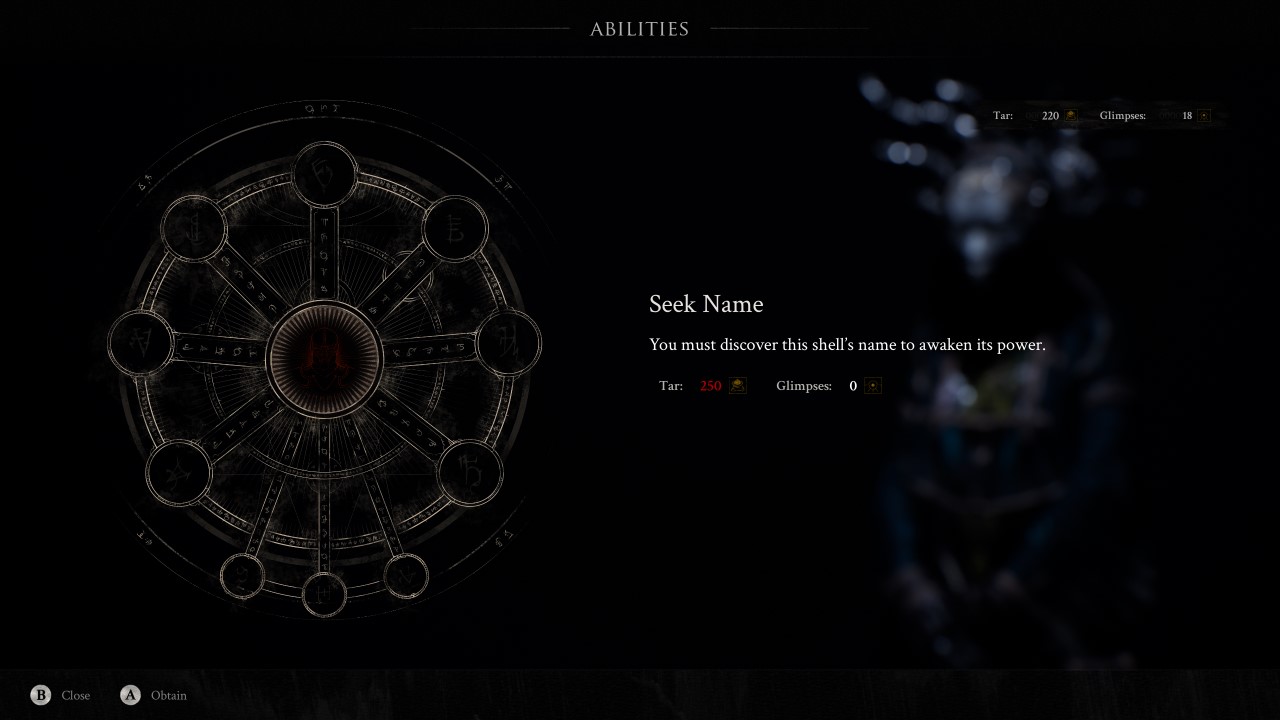
Sure, there’s a handful of vendors around for which Tar can be traded, but outside a few limited items it’s hard not to feel like you’ve wasted hard earned Tar that could have been better invested in your Shells. Coming off other Soulslikes it felt odd to not progress my character despite having a hoard of Tar on hand. If Cold Symmetry were to allow players to spend Tar and Glimpses independent of each other on skills this issue would virtually disappear, without tarnishing the risk that comes from greedily hoarding it due to how expensive some of the passives are. It’s a small problem that disrupts the early game’s flow, but once you venture out of the Fallgrim marshes and into one of Mortal Shell’s three temples it ends up correcting itself thanks to the more liberal amount of Glimpse consumables available.
Combat also makes a poor first impression. In the beginning it feels clunky, and both the starter Hollowed Sword and Harros’s strange dodge step/roll take some adjusting to. Outside of Harden the first hour of combat feels shallow, and there’s a minor delay between inputs and actions that’s most evident at the start of the game – for reasons I’ll discuss later – but as you progress through Mortal Shell combat becomes snappier and more varied.
While easy to miss at the start, there’s a potent parry unlocked at the main hub in Fallgrim that brings Mortal Shell’s combat together. Outside of your stamina and health, every Shell has a set amount of resolve (Solomon, The Scholar has the most) and this resolve is used to power weapon abilities, a gloriously powerful kick unlocked within each Shell’s skill wheel, and the Empowered Riposte. Successful parries fill up a single bar of your resolve, which in-turn allows you to pull off an Empowered Riposte on your next parry.
There are other Empowered Ripostes found within Mortal Shell, but everyone starts with the heal. Since there’s no traditional blocking, and because enemies track your every movement – making circle-strafing nigh impossible – players are encouraged to slowly, and deliberately press the attack using a combination of parries, Hardens, and standard attacks to overcome the opposition. Since resolve is also generated from successful attacks aggression is encouraged, and mastering the parry becomes essential in keeping your health topped off. There are no Estus Flask substitutes in Mortal Shell: there are only a handful of consumable healing items in the game, so you’ll need to rely on the Empower Riposte if you plan to stay alive.
The Empowered Riposte is one of the many wrinkles to combat that gives Mortal Shell a unique edge that pushes it beyond imitation. There are only four weapons in the game, each with two abilities that are individually unlocked with a specific item found out in the world, and there isn’t a single shield among them. You’ll either use the basic Hallowed Sword, the devastating yet slow Marty’s Blade, the rapid Hammer and Chisel, or the fire-infused Smoldering Mace. To make things more entertaining, each weapon has to be earned via a battle against the boss from the tutorial, who is wielding the weapon you’re trying to earn.

Four weapons and four Shells may seem rather limited, but they’re all tied intimately to Mortal Shell’s world design and general flow, which also differs from traditional Soulslikes. Rather than progressively moving forward down a relatively linear path of zones, Mortal Shell is composed of the central zone of Fallgrim, and three adjacent temples that be tackled in any order. All four zones have a specialized design and set of enemies to overcome – one or two repeat pests aside – which allows each to stand out on their own. Two of the Shells are found along the path towards a temple, and a specific weapon battle is accessible in the minor hub that opens each. Tiel, for example, can be located by following the path towards the Crypt of the Martyrs, and inside the Crypts’ hub rests the book that’ll lead to the fight for the Martyr’s Blade.
A rogue with high stamina and a skill that allows him to heal from poison seems like an odd Shell to pair with a giant fuck-off greatsword, but Cold Symmetry’s intent is clear: they want you to play with your new toys in the temple you found them. The Crypt of the Martyrs is lousy with poison inflicting enemies, but Tiel’s “Recollection of Yearning” passive completely negates the hazard. The Martyr’s Blade chews through enemy health with each glacial swing, and with an intelligent mix of parries and Hardens the massive blade proves a formidable weapon in Tiel’s hands.
Weapons and Shells cannot be swapped on a whim either. Outside the main hub in Fallgrim players will need either a consumable effigy to change between Shells, and weapons can only be traded on demand after a specific item for each has been found – typically accessible only after clearing a temple. Mortal Shell does have a fast travel system, but it’s not made available till you’ve learned every skill for at least one Shell (and have stocked up 30 Glimpses afterwards), meaning players will either have to run all the way back to the main hub to change their loadout, or commit to their new setup. I found this limitation annoying initially, and once I settled on my preferred Shell and weapon I never found cause to change. Not that this was a problem, mind you, yet in the way leveling, weapons, and swapping have been designed I found it easier to stick with what I liked.
Mortal Shell is not a long game, with only four “true” boss fights. There are a handful of mini-bosses sprinkled about, but they tend to be reskins of two early encounters with a couple of small alterations. The boss fights are largely fine – challenging, yet fair – but none of them had the sort of “wow” factor bosses from other Soulslikes tend to possess. None of them were inherently bad (though the final boss certainly comes close), yet none were what I’d call spectacular. Functional and fun, maybe, but we’ve seen better.
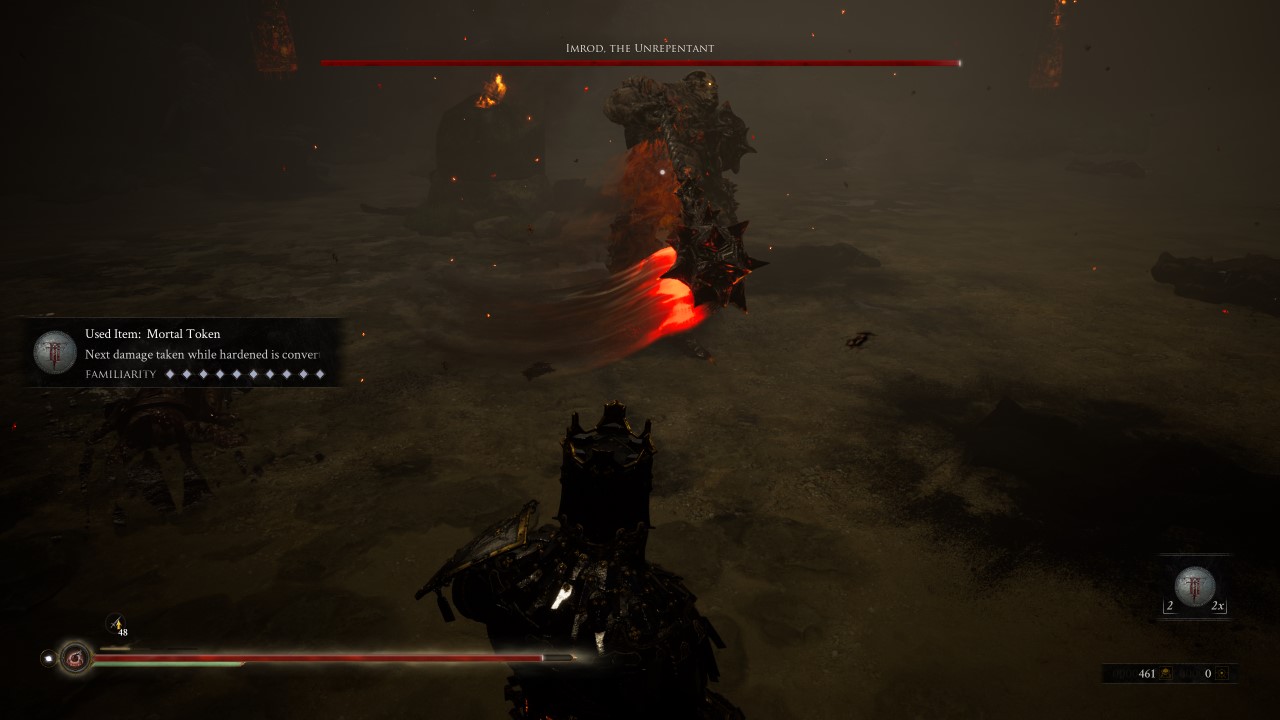
As I’ve already mentioned, Fallgrim and the three temples each offer up their own set of deadly opponents to overcome. The Seat of Infinity had robed giants who swung slow moving, yet crushing maces. The Shrine of Ash was packed with rapid striking knights and fiery fat gremlins that chucked orbs of hot slag capable of setting my ass ablaze. Mortal Shell may not be a long game at roughly 15 hours, but the four environments are masterfully designed. Every enemy had clear, easy to understand attack patterns that made each a thrill to fight. Cold Symmetry isn’t a large team, so they wisely prioritized quality over quantity, a truth made evident once I discovered the robust New Game+ mode unlocked after defeating the final boss.
Mortal Shell was clearly designed with New Game+ in mind. After clearing the final boss I was given the choice to either stay in my current game, or to restart with all my Shells, levels, weapons, and items intact. I now had the means to openly swap weapons and Shells on a whim. The 40+ items that were once unfamiliar to me were now completely maxed out thanks to my first playthrough (items in Mortal Shell have to be used before you know what they do, and at max familiarity they confer an additional bonus). New secrets began to unfold before me. With New Game+ my playtime easily doubled.
Mortal Shell expects you to run through it a few times. Like From Software’s titles, the lore and story in Mortal Shell is drip fed to you piece by piece, and the more you play the more you learn. Your first playthrough was meant to instill a sense of wonder and awe, and the dark fantasy world of Mortal Shell is so wonderfully put together that I rarely turned a corner without finding something to gawk at. You’re not meant to be all-powerful until round 2, and by that point the game delights in unraveling its mysteries for players willing to dive deeper into this shattered world led astray by a corrupt faith that obsessed over immortality. Cold Symmetry is aware that short is indeed sweet, if you count getting murdered time and time again as sweet.
Mortal Shell’s clear infatuation with Dark Souls keenly rides the line between imitation and homage. The four zones could easily fit within a proper Dark Souls title, and the impactful and responsive combat stands should to shoulder with the best Soulslikes in the market. Mortal Shell is different where it counts, with an intelligent progression system tied to the Shells, a second chance mechanic that takes the sting out of death when properly executed, and battles that prioritize methodical aggression over turtling behind a shield. Yet, much like the ruined world which the game is set, not all is well within Mortal Shell.
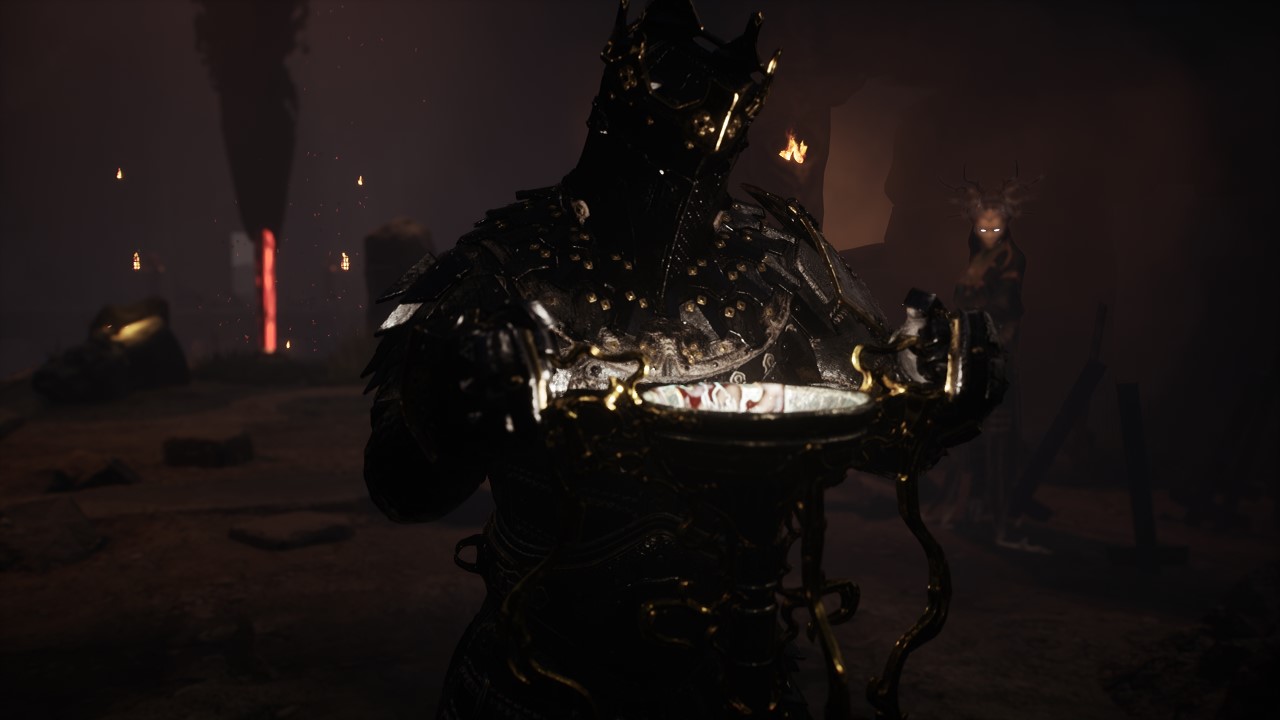
A handful of issues keep Mortal Shell from reaching greatness.
As I’ve already mentioned, combat in Mortal Shell tends to be snappy and responsive – a standard all quality Soulslikes strive for. That is until one of a handful of bugs rears its head and derails the experience. There are quite a few moving pieces within Mortal Shell’s combat: the parry and Empowered Ripostes, your ability to Harden and avoid damage, the weapon abilities and kick that can shift a tough fight firmly in your favor, and the basic dodge that is a staple of the genre. All of these elements come together to make Mortal Shell’s combat an exquisite affair, but if even one of them breaks everything comes crashing down.
Sadly, that would and did happen. When Mortal Shell breaks, it breaks. I’ve lost count of the number of times my Harden skill stopped working, or I’d be unable to parry despite desperately hammering the button on my controller. There were times where the game seemed to struggle with everything happening on screen, and my prompts would wind-up ignored or grossly delayed. For every sublime duel there’d be two I’d spend more time fighting against the game and its suite of bugs than my opponent.
It’s one thing for an enemy to glitch out – to get stuck on the environment or stand still and ignore my attacks (which happened numerous times) – but it’s another for key components of combat to stop working. Because Mortal Shell prioritizes deliberate in-your-face brawls every action holds equal weight in the grand scheme. Finding out you can’t parry as an enemy lands a crushing death blow isn’t fun, it’s frustrating. Trying to Harden in an attempt to counter a boss’s combo only to stand there and suffer the full brunt of the assault is aggravating. If these issues were rare I wouldn’t have dedicated a whole segment of this review to them, but here we are.
The gravest bug is also the most insidious: the inexplicable delay that crops up between your prompts and the game. The other combat bugs can be remedied easily by returning to the main menu and reloading the game. This solution is annoying, considering Mortal Shell doesn’t have a “bonfire” system in the traditional sense. You’ll respawn at the last Sester Genessa NPC you interacted with, which can be leagues away from where you left off. But, the delay bug? It comes and goes on a whim, and it’s so damned obvious when it’s around due in no small part to how precise Mortal Shell’s combat is when the bug isn’t at play.
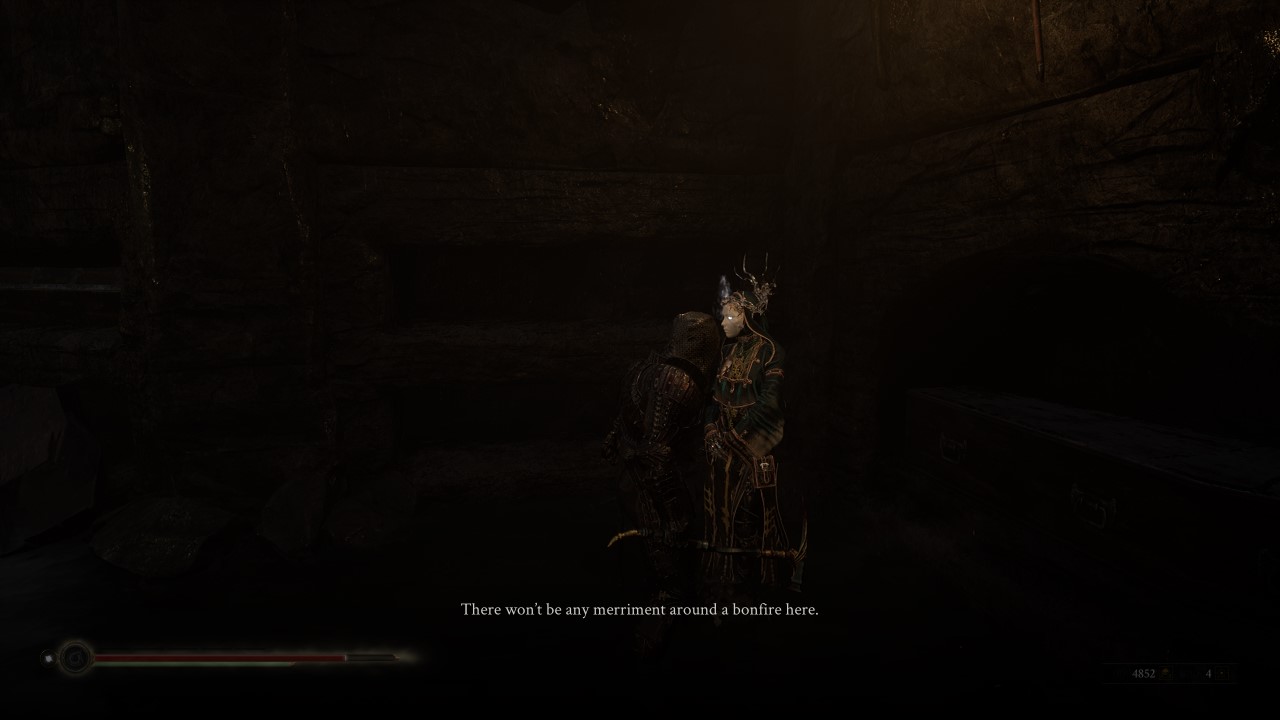
Attacks and parries that once went off immediately suddenly take a few milliseconds to register, which in the case of the parry can be the difference between success and painful failure. A Harden meant to save your life triggers a split second too late, and you find yourself face down in the dirt. Mortal Shell’s combat is so often on point that the bug is impossible to ignore when it appears, and the only way to correct it is to either return to the menu and forfeit your progress, or to pray it works itself out.
Bear in mind I reviewed Mortal Shell on PC, where my average framerate typically rested well above 60 FPS. Our editor, Will, has been playing the game on Xbox and informed me that the combat feels clunkier there. The bug seems to manifest itself when combat is at its most hectic, so I’d argue there’s something clogging the pipes whenever enemies clutter the screen and attack simultaneously.
These issues are further exacerbated by the erratic lock-on camera. When tussling with enemies roughly the same size as your character in open arenas it works fine, but find yourself in a tight corridor or up against a gargantuan foe and it can’t quite figure out what angle it wants to sit at. Half the zones take place in cramped castle corridors and claustrophobic crypts, meaning a sizable portion of the game is spent fighting not only the monsters lying around, but the camera itself. The final boss battle alone would be improved ten-fold if the camera wasn’t busy clipping into the floor the majority of the time, leaving me to wonder what the next attack was because I couldn’t see much of anything happening.
Performance is largely okay, but could be better. Mortal Shell is a gorgeous game from an art standpoint: it doesn’t push any graphical boundries, but the lighting and volumetrics alone are used to great, moody effect. My 1080 Ti and Intel i7-8700K ran the game at an average of 70 FPS with Ultra settings at 1440p resolution, but dips below 60 into the mid-50s were not uncommon. They were infrequent enough to not disturb gameplay, but considering Mortal Shell looks like a game from four years ago I expected better.
If there is a silver lining here it’s the sound: across the board it’s fantastic with the exception of positional audio, which is a touch lackluster. For the most part I could tell where an enemy was from sound cues, but it wasn’t rare for me to face an enemy dead on only to hear them to my left or right. Odd, sure, but not a dealbreaker.
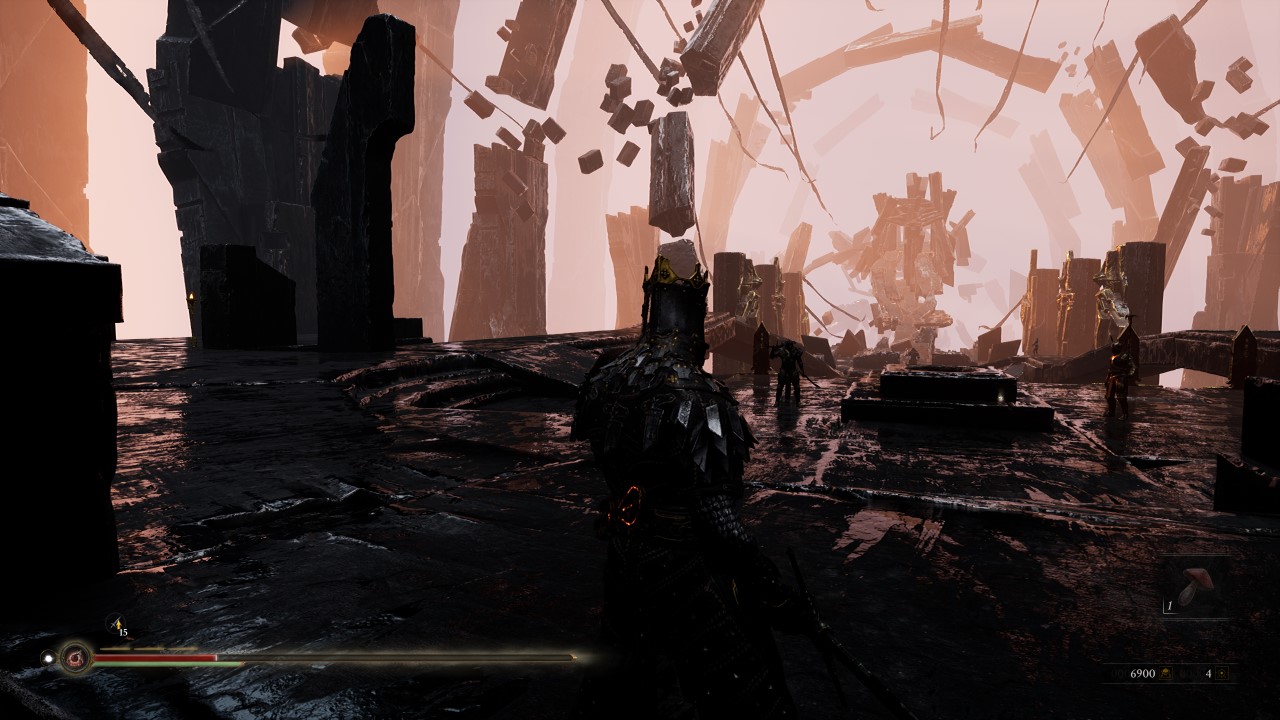
The Verdict.
There isn’t a single issue in Mortal Shell that can’t be addressed with a patch or two in the coming months, and while the bugs are disruptive when they do appear they don’t ruin the highs the combat often reaches. An overzealous lock-on camera hinders more than it helps, yet even that isn’t enough to tarnish the overall experience. Mortal Shell is also shorter than the average Soulslike, but runtime it’s bolstered by a robust New Game+ mode. At $30 Mortal Shell more than justifies its price, even with the current slate of issues that have a bad habit of harming the overall experience.
Mortal Shell isn’t merely “like Dark Souls”; it’s a love-letter to From Software’s juggernaut series that successfully captures what makes those games special while carving out an identity all its own. Cold Symmetry’s dark fantasy action role-playing game smartly builds on the formula set by its inspiration with nuanced combat and its unique Shell mechanic, while displaying reverence with a world that perfectly captures the oppressive atmosphere and ruin of Dark Souls’ own Lordran. It isn’t without fault, yet as a freshman effort Mortal Shell is a worthy addition to the Soulslike pantheon.


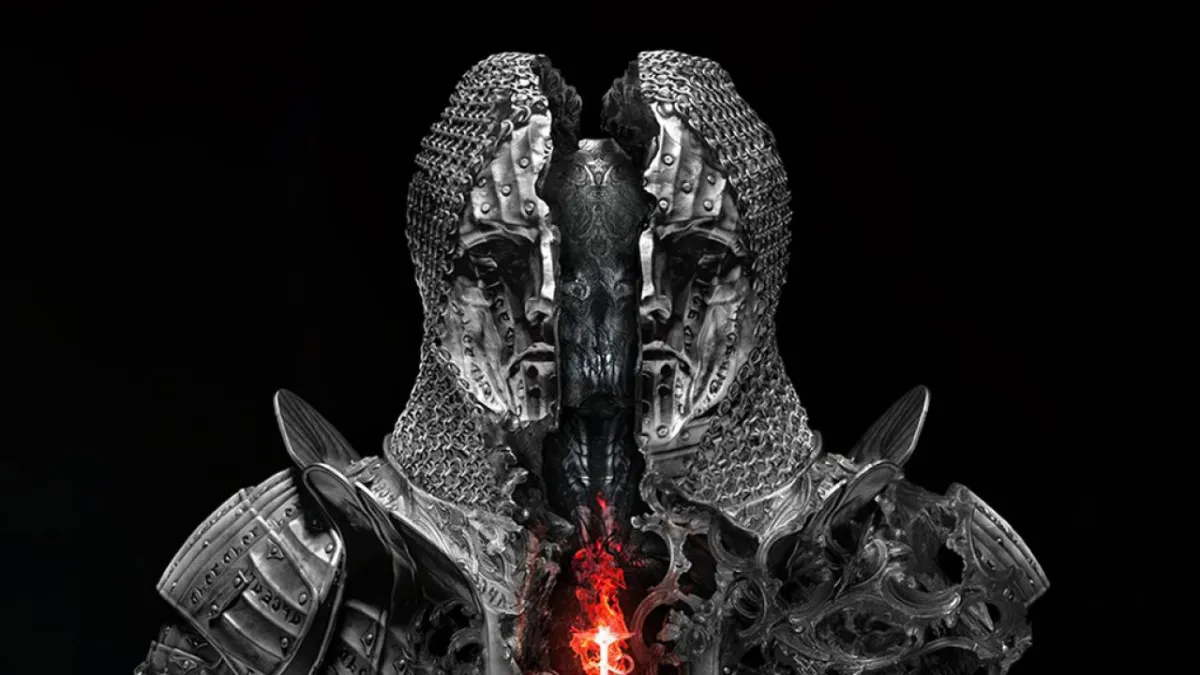
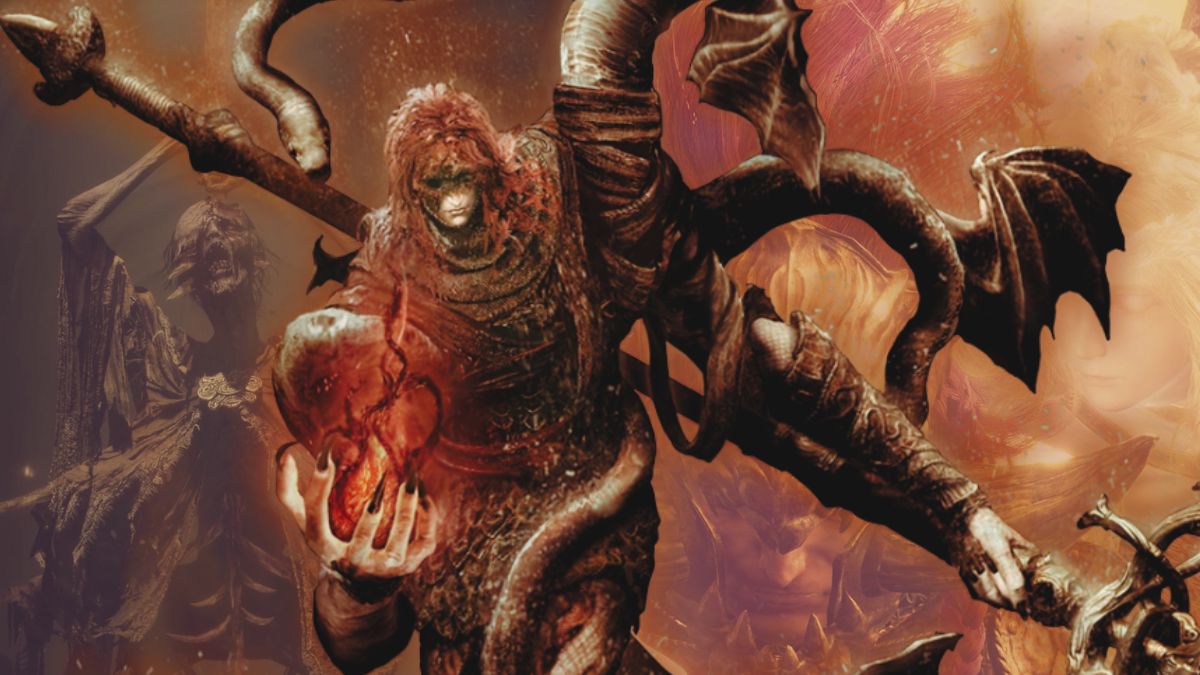
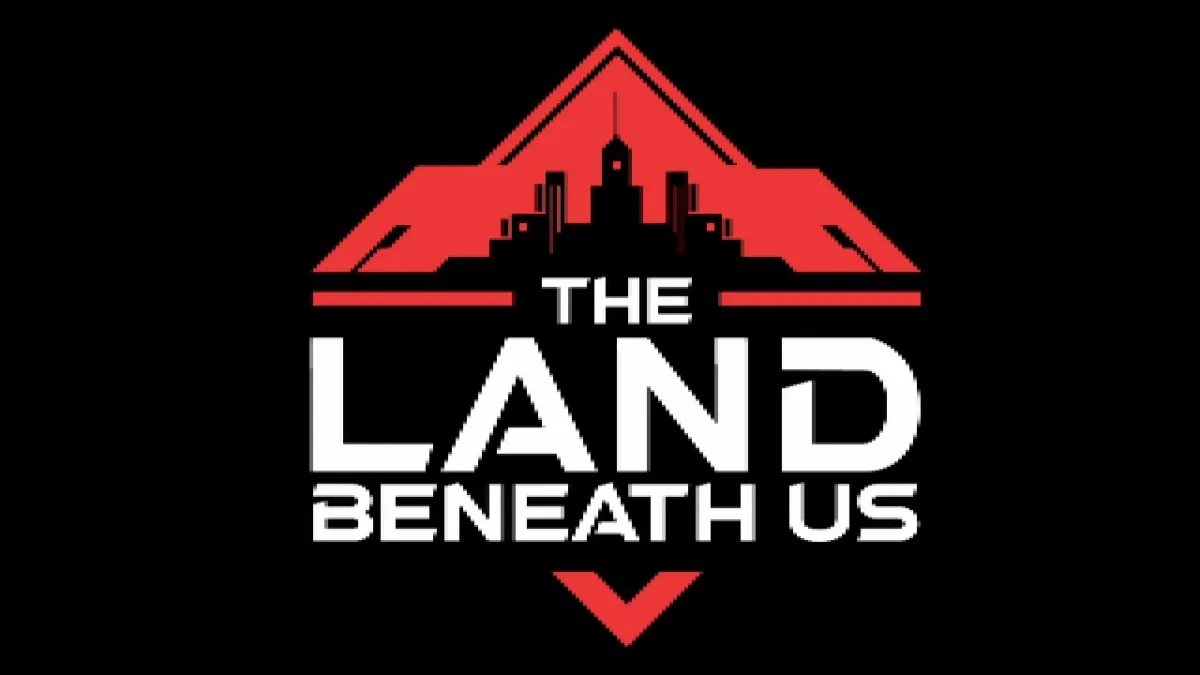
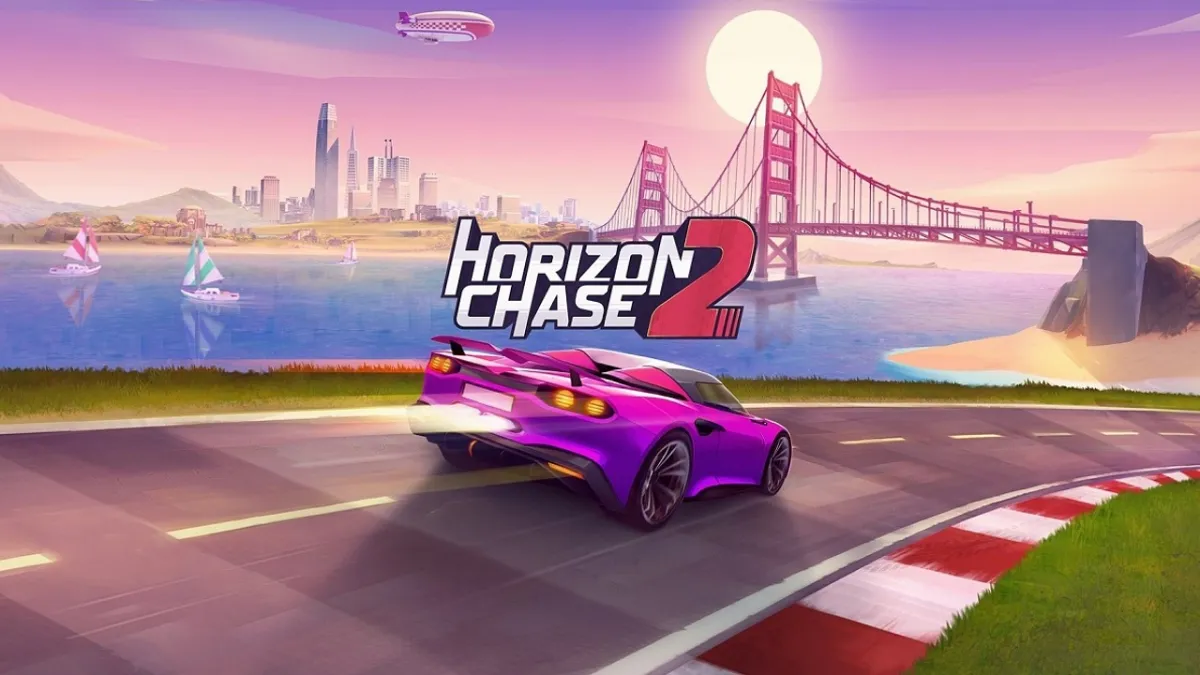
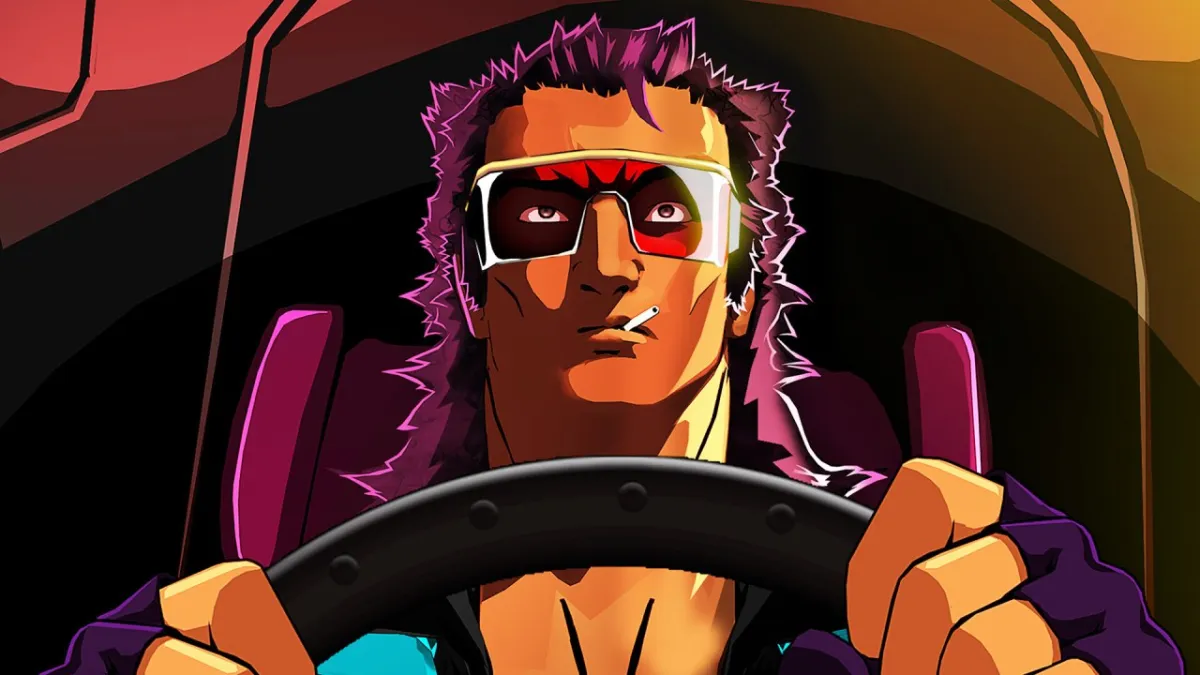
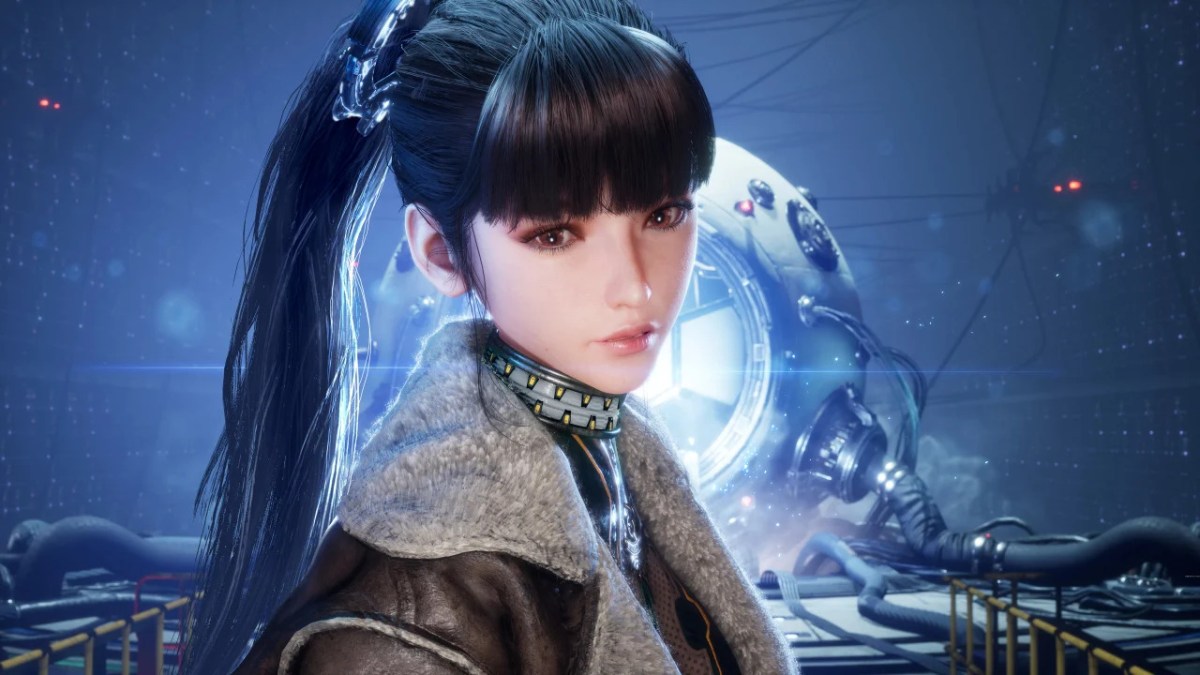
Published: Aug 17, 2020 10:00 am